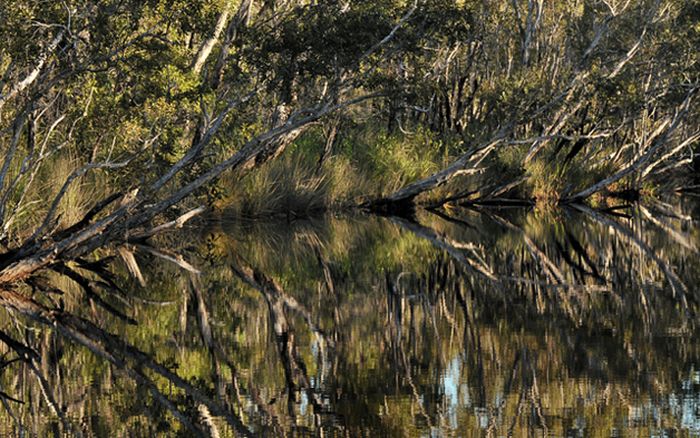|
|
Photos Of Australia
|
Prior to European settlement in Australia, the animist beliefs of Australia's indigenous people had been practised for millennia. In the case of mainland Aboriginal Australians, their spirituality is known as The Dreamtime and it places a heavy emphasis on belonging to the land. The collection of stories which it contains shaped Aboriginal law and customs and Aboriginal art; story and dance continues to draw on these spiritual traditions. In the case of the Torres Strait Islanders who inhabit the islands between Australia and New Guinea, spirituality and customs reflected their Melanesian origins and dependence on the sea. The 1996 Australian census counted more than 7000 respondents as followers of a traditional Aboriginal religion.
Since the arrival of the First Fleet of British ships in 1788, Christianity has grown to be the major religion. Consequently, the Christian festivals of Christmas and Easter are public holidays, the skylines of Australian cities and towns are marked by church and cathedral spires, and the Christian churches have played an integral role in the development of education, health and welfare services in Australia. The Catholic education system operates as the largest non-government educator, accounting for about 21% of all secondary enrolments at the close of the first decade of the 21st century, with Catholic Health Australia similarly being the largest non-government provider. Christian welfare organisations also play a prominent role within national life, with organisations like the Salvation Army, St Vincent de Paul Society and Anglicare enjoying widespread support. Such contributions are recognised on Australia's currency, with the presence of Christian pastors like Aboriginal writer David Unaipon ($50) and founder of the Royal Flying Doctor Service, John Flynn ($20). Other significant Australian religious have included St. Mary McKillop, who became the first Australian to be recognised as a saint by the Roman Catholic Church in 2010 and Church of Christ pastor Sir Douglas Nicholls, who, like Martin Luther King in the United States, led a movement against racial inequality in Australia and was also the first indigenous Australian to be appointed as a State Governor.
For much of Australian history the Church of England (now known as the Anglican Church of Australia) was the largest religious affiliation, however multicultural immigration has contributed to a decline in its relative position, with the Roman Catholic Church benefiting from the opening of post-war Australia to multicultural immigration and becoming the largest group. Similarly, Islam, Buddhism, Hinduism and Judaism have all been expanding in the post war decades. Weekly attendance at church services in 2001 was about 1.5 million (about 7.8 per cent of the population).
An international survey, made by the private, not-for profit German think-tank, the Bertelsmann Foundation, found that "Australia is one of the least religious nations in the western world, coming in 17th out of 21 (countries) surveyed" and that "Nearly three out of four Australians say they are either not at all religious or that religion does not play a central role in their lives." A survey of 1,718 Australians by the Christian Research Association at the end of 2009 suggested that the number of people attending religious services per month in Australia has dropped from 23 per cent in 1993 to 16 per cent in 2009, and while 60 per cent of 15 to 29-year-old respondents in 1993 identified with Christian denominations, 33 per cent did in 2009.
|
|









